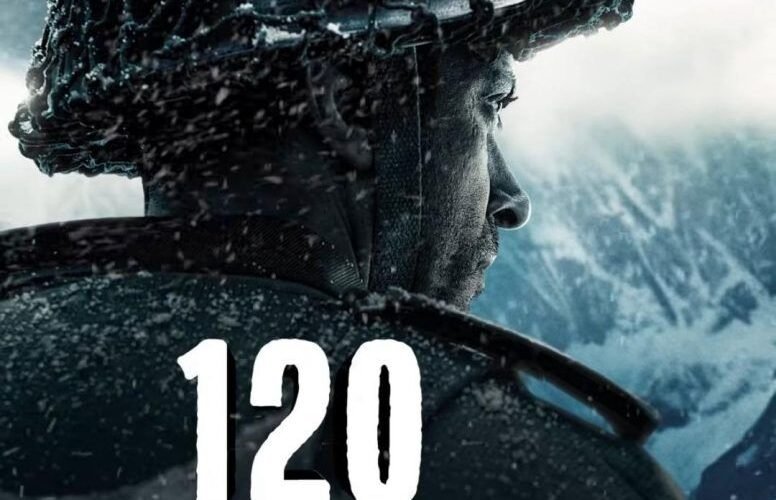120 Bahadur Review: A Fierce, Emotional Tribute to Rezang La

“120 Bahadur” storms into theatres with a blend of history, heartbreak and heroism. This film doesn’t just recreate a battle; it revives a legend. Director Razneesh “Razy” Ghai takes the iconic Battle of Rezang La and turns it into a gripping cinematic experience that keeps the audience locked in their seats. Farhan Akhtar returns to acting after several years, and he commands the screen from the very first frame.
A Story That Hits Like a Grenade
The film travels back to 18 November 1962, when 120 soldiers from the 13 Kumaon Regiment stood firm at Rezang La in Ladakh, facing over 3,000 Chinese troops. The battle remains one of the most courageous last stands ever recorded in Indian military history.
“120 Bahadur” opens with one of the six surviving soldiers narrating the events of that frozen morning. This personal storyteller approach pulls you straight into the battlefield. You feel the altitude. You feel the cold. You feel the fear. Most importantly, you feel the unbreakable determination that drives these men forward.
Major Shaitan Singh Bhati, played by Farhan Akhtar, leads his soldiers with a calm and steel-like resolve. He decides to hold the post at any cost, even when he understands that reinforcements may never arrive. His motto, “Hum peechhe nahi hatenge,” echoes throughout the film and defines its spirit.
Farhan Akhtar Fires on All Cylinders
Farhan Akhtar owns this film. He doesn’t shout, pose or flex heroically. He fights with dignity, speaks with purpose and commands with heart. His portrayal gives Major Shaitan Singh a human core — a soldier who understands sacrifice yet stands tall with unwavering courage.
Raashii Khanna plays Shagun Kanwar, Major Singh’s wife. She brings softness and emotional warmth to an otherwise brutal narrative. Her scenes never interrupt the pace; instead, they deepen the emotional weight behind every decision Major Singh makes.
The supporting cast — Ankit Siwach, Vivan Bhatena, and Sparsh Walia — add humour, brotherhood and authenticity. Their camaraderie feels real, and it gives the film its beating heart. You laugh with them, fear with them and eventually mourn with them.
Cinematography That Freezes You to the Bone
The cinematography by Tetsuo Nagata stands out immediately. He builds the icy world of Rezang La with sprawling aerial shots, sharp ridge lines and blinding snowfields. You can almost feel the cold wind slicing across the screen. Every frame screams harshness and isolation. When the night battle begins, the visuals explode — tracer bullets slice the darkness, artillery thunders across mountains and explosions illuminate the frozen valley.
The sound design amplifies this brutality. Gunshots echo through the valley, metal clangs, snow crunches under boots, and the ringing silence after explosions feels eerily real. The battlefield never turns into a theatrical playground; it stays raw, loud and suffocating.
Music That Touches the Soul
Amit Trivedi, Salim–Sulaiman and Amjad Nadeem Aamir enrich the experience with a grounded and soul-touching soundtrack. Songs like “Naine Ra Lobhi” and “Dada Kishan Ki Jai” don’t distract from the film. They elevate it. The music carries echoes of folk culture, sacrifice and pride without drowning the emotions in noise.
The background score tightly grips the action sequences. It rises and falls with the tension, guiding the audience deeper into the emotional turmoil of the soldiers.
A Script That Swings Between Sharp and Safe
The screenplay works beautifully in many places. The film never glorifies war with exaggerated heroics. Instead, it highlights real fear, real loss and real courage. The emotional scenes never feel forced, and the battle sequences build naturally.
However, the script sometimes plays too safe. It focuses heavily on Major Shaitan Singh, which slightly overshadows the other 120 heroes who fought beside him. The entire company deserves the spotlight, and the film doesn’t always give it.
The first half builds tension slowly. Some viewers may find it a bit long, but the emotional buildup pays off in the second half, where the chaos of war unleashes with full force.
Controversy That Surrounds the Film Like a Shadow
“120 Bahadur” stirred a big political and cultural debate before its release. Several Ahir community groups from Haryana and Rajasthan claimed that the movie downplays the contribution of Ahir soldiers and highlights only Major Shaitan Singh.
This criticism led to a Public Interest Litigation (PIL) demanding corrections, disclaimers or even a title change. The debate continued for weeks until the Delhi High Court stepped in and cleared the movie for release. The court allowed the film to hit theatres but suggested future corrections in the OTT version if needed.
This controversy doesn’t change the film’s core message, but it does influence how different audiences view the story.
Box Office and Early Response
“120 Bahadur” entered theatres with a focused release strategy across 900–1000 screens. It also reached over 800 defence theatres, making it a rare mainstream film that directly honours the military community.
Critics reacted with mixed-to-positive reviews. Many praised the performances, visuals and sincerity. Some pointed out that the film could have explored each soldier more deeply. Audiences, especially defence families, responded strongly to the film’s emotional weight and realism.
Final Verdict: A Film That Salutes Courage with Heart and Honour
“120 Bahadur” stands tall as a heartfelt and visually stunning war drama. It honours one of India’s most heroic battles with sincerity and fire. The film never turns into loud nationalism; instead, it celebrates humanity, brotherhood and sacrifice.
What Works:
- Farhan Akhtar’s powerful performance
- Breathtaking cinematography
- Realistic battle sequences
- Strong emotional beats
- Respectful tone
- Excellent sound and music
What Doesn’t:
- Over-focus on one character
- Uneven pacing in the first half
- Limited exploration of all 120 soldiers
Overall Rating: ⭐⭐⭐⭐☆ (4/5)
A must-watch for anyone who loves historical war dramas, powerful performances and stories of unshakeable bravery.
Also Read – Nepotism in Bollywood: Is It Really That Bad?













